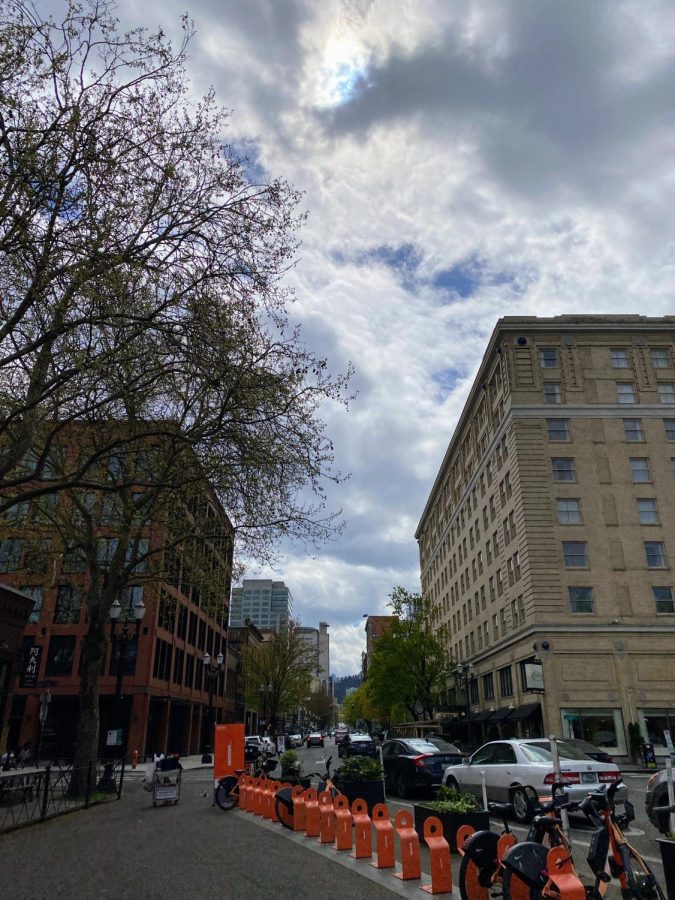photo courtesy of Sebastian Bush
A main avenue in Portland, Oregon on an overcast day.
Telling Stories with Street Books
June 1, 2022
People crowd around a folding table, chattering and passing around books. One man asks for reading glasses; the woman standing behind the table reaches into a bag and pulls out a brand-new pair. Though every inch of the table is covered with books, many more sit in the cardboard boxes half-pushed under the table.
Street Books is an organization that was started 11 years ago by Laura Moulton, a professor at Lewis & Clark College. In 2011, Moulton started a social practice art project. Social practice art is loosely defined as art or creativity with the mission to benefit the community in some way. While a slightly non-traditional means of community service, it provides support for an often-overlooked human need: intellectual and aesthetic stimulation.
Moulton’s project was initially scheduled to be three months long. However, on her last day, Moulton realized she couldn’t just stop. Street Books has been running ever since.
Street Books brings books to different locations around Portland. Diana Rempe, a member of the organization, called it a “street library.” Street Books is bicycle-powered: this allows the organization to frequent communities in locations that cannot be accessed by cars. Street Books operates on a weekly schedule, so members of Portland’s houseless community always know when to expect their next visit. Books are free to borrow and no fees or charges apply if the book is not returned.
One aspect that is unique about Street Books is just how much they engage with the community. Street Books takes requests from people and always makes sure to have the book by the next visit. The majority of books Street Books distributes have been donated, however, books that are requested are often bought in order to meet this time frame.
Furthermore, even if people don’t make specific requests, Street Books takes into consideration what types of books are popular or what genres individuals frequently borrow. Street Books makes an effort to carry books written by authors from underrepresented groups: LGBTQIA+ authors, BIPOC authors, native authors and many more. They also carry books in other languages and have weekly sessions in Spanish.
Street Books carries more than fiction and nonfiction novels, too. The Bible, along with other religious texts, is highly requested and almost always stocked. Additionally, they carry coloring books and puzzles. Lastly, Street Books carries reading glasses. “Not only to read a book but to read prescriptions or to fill things out—[reading glasses] are really hard to come by,” Rempe explained.
Because of their focus on the specific intellectual needs of the community, Street Books often partners up with other organizations that provide services like meals or other amenities. The day Inkwell spoke with them, they were paired with Community Meals with Home PDX Church. People were drifting between where the two organizations were set up, carrying plates and books.
“Street Books was founded with certain core human experiences in mind,” Rempe said. “Intellect, discussions and ideas, talking to others about the same novel—there’s a need for connection around more ephemeral things like knowledge.” She commented on the importance of remembering that houseless people are full and rounded, with interests and passions that often get overlooked by society. Street Books wants to help to fill the gap in services and organizations that provide support for needs beyond those required only for survival. Street Books understands the importance of “creat[ing] a community of support for people living outside, through a shared love of books.”
This piece was originally published in Inkwell’s Portland Issue.
